Here are some fun, simple pre-reading skills activities for preschoolers that are fun for home or school.
What is Pre-Reading?
Before any child can learn to read well and become a competent speller, five pre-reading skills must be mastered in order to lay a proper foundation.
Pre-reading skills are important as they set children up to decode words independently and read with understanding. They need to be developed before teaching a child to read.
They are important for school readiness and early literacy development.
What are the 5 Pre-Reading Skills?
These are the five main pre-reading skills that every student must master before learning to read [source].
1. Print Awareness
Print awareness is the understanding that letters form words and that these words have meaning when they are read.
It is knowing that the four letters on a stop sign have a message and that the words in a book tell a story or provide information.

There is also an understanding of the order of reading as they watch people read from left to right, and cover to cover.
2. Motivation to Read
The desire to decode words and understand what is in a book is essential before a child learns to read.
A baby is too young and does not yet have the motivation to want to decode the words in his plastic bath book.
Older children who have developed print awareness, and have listened to their parents read bedtime stories, will want to start understanding the words on the pages themselves.
This skill must be fostered until children develop a healthy desire to read.
3. Listening Comprehension
When a child is able to ask and answer questions about a story or summarize what they have read or heard, they have developed listening comprehension.
4. Letter Knowledge
Knowing the difference between upper-case and lower-case letters and recognizing letters and their sounds, forms the basis of letter knowledge.
Without this, words cannot be decoded and sounds cannot be blended together.
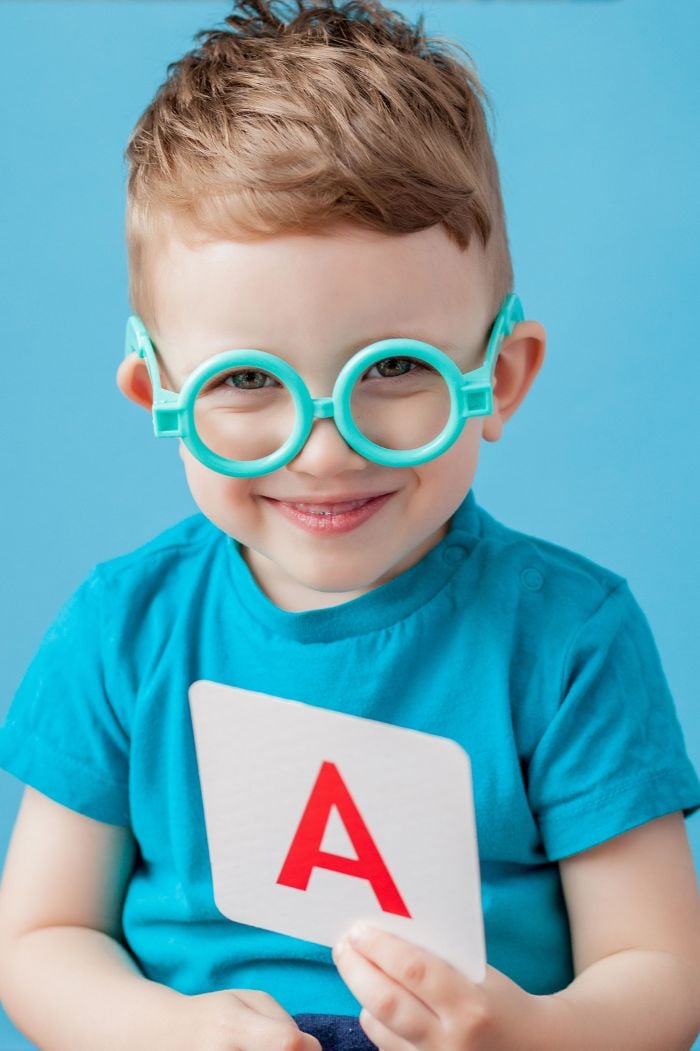
5. Phonological Awareness
This refers to hearing the different sounds in words (beginning sounds, end sounds, rhyming patterns, middle sounds and individual sounds).
Good phonological awareness means children are able to blend sounds, decode them and manipulate them.
These five skills can be developed from a very young age in many easy ways.
Here are some ideas, starting with basic activities to develop print awareness, motivation and listening comprehension, and moving on to more advanced activities that build letter knowledge and phonological awareness.
10 Pre-Reading Skills Activities for Preschoolers
Many of these activities are inspired by the ideas in the Phonological Awareness Package, compiled by Jane Sheils and Yvonne Sawyers.
1. Read to Children Every Day
It’s never too early to start reading to your children.
Initially, it may just be soothing to listen to you read as your baby falls asleep, but as our child grows he will get used to the idea that the book represents a message.
When reading to your older children, even those who can already read, you will be instilling a love for books and showing that you value time to read together.
2. Ask Questions While Reading
Develop listening comprehension and stimulate higher-order thinking skills by asking questions during storytime.
Make sure to incorporate a variety of question types, such as cause-and-effect questions, predictions and opinions.
3. Point Out Print in the Environment
There are several ways to do this:
- Read the road signs as you drive and discuss what they mean. What would happen if people couldn’t read the sign that says “Beware of school children crossing the road”?
- Discuss the labels on your groceries. Why does the chemical cleaner have warning words? How do you know how much sugar is in your cereal?
- Discuss books. How do you know who is the author of a book? How do you know what the book is about before you read it? Which cover is the front cover and which is the back cover?
- Open the mail together (letters and emails). Who are these letters from? What message do they have for me? How do I know how much I need to pay for electricity usage this month?
4. Learn the Letters
- Play with magnetic letters, letter tiles, stamps, letter cut-outs and shapes.
- Teach your child the letters in their name.
- Learn the alphabet song.
- Think of nouns that start with each letter.
- Use alphabet charts to compare upper-case and lower-case letters.
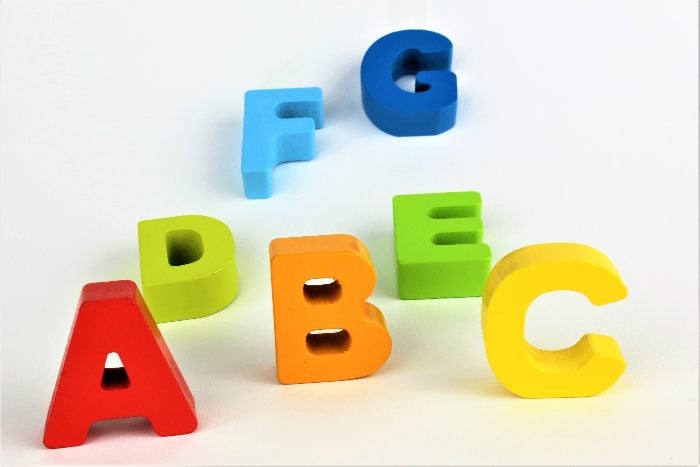
5. Learn Rhymes and Poems
Rhymes, songs and poems are a great way to start introducing rhyming words. They help children learn to read. Point out the sets of rhyming words as you sing them.
Make up new rhymes with simple patterns such as an (can, man, ran, pan) or ip (tip, rip, lip, sip).
When your child is old enough to play with sounds, move on to rhyming games.
6. Play Rhyming Games
- Find rhyming words – Say the word cat. What sound does cat end in? What other words end in at – mat, pat, rat, etc.
- Identify words that don’t rhyme – Say three words e.g. lap, map, hop. Which word doesn’t fit in?
- Finish the sentences with a rhyming word – Finish the sentence by finding a word that rhymes with cat: My cat is wearing a _____?
7. Develop Listening Skills
Develop listening skills by asking your child to listen to a word, remember it and then remove part of it, mentally. Use compound words at first.
Here is an example of the instructions to give:
- Say jellyfish
- Now say jellyfish again but without jelly.
- Answer: fish
This can be very difficult at first but it’s an excellent activity for developing listening and the ability to manipulate sounds.
Give the answer at first until the concept is understood, and your child can do it independently.
Try these simple listening activity ideas.
8. Hear Sounds in Words
Start by listening for the beginning sound in words:
- Write down two sounds or use two letter tiles.
- Say a simple, 3-letter word and ask which sound the word begins with.
- Your child must either circle the letter or point to it and say it out loud.
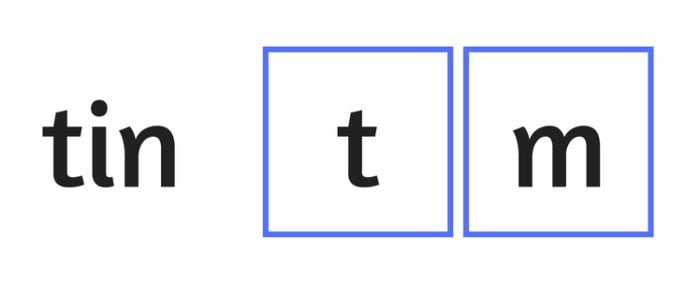
Then, follow the same procedure and listen for the end sound.
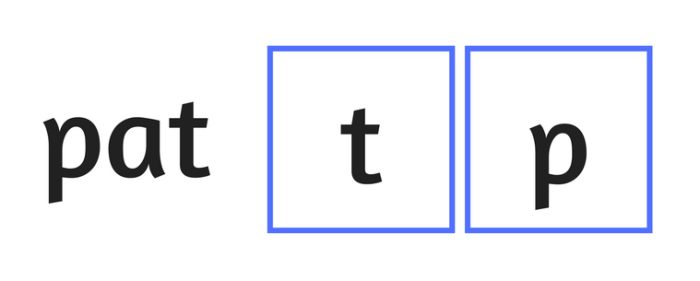
And finally, identify the middle sound.
Vary this activity by saying just one sound (e.g. ‘t’) and asking where the sound is in the word – beginning, middle or end.
9. Manipulate Sounds
When your child is able to identify sounds and hear them at the beginning, end and middle of words, she is then ready to manipulate sounds. Here is an example:
- Say cat
- Now change the c to a m
- What do you hear?
- Answer: mat
Make sure you are using the actual sound, not the letter name (mm, not em)
- Say ham
- Now change the m to a t
- What do you hear?
- Answer: hat
10. Blend and Decode Sounds
The final step is sounding out words and blending letters. These activities can be done with letter tiles.
Sounding out/decoding:
- p-e-n (pen)
- c-a-t (cat)
Blending:
This activity can be done with letter tiles. Place an e and d together to form ed, then add new letters to the beginning to make new words.
- b-ed (bed)
- r-ed (red)
- l-ed (led)
When children have the phonological awareness to decode words, then they are ready to read!
I hope you enjoyed these preschool and kindergarten pre-reading activities.
Remember that pre-reading and pre-writing skills are both important to develop before introducing formal instruction to young children.
Read more about school readiness skills.
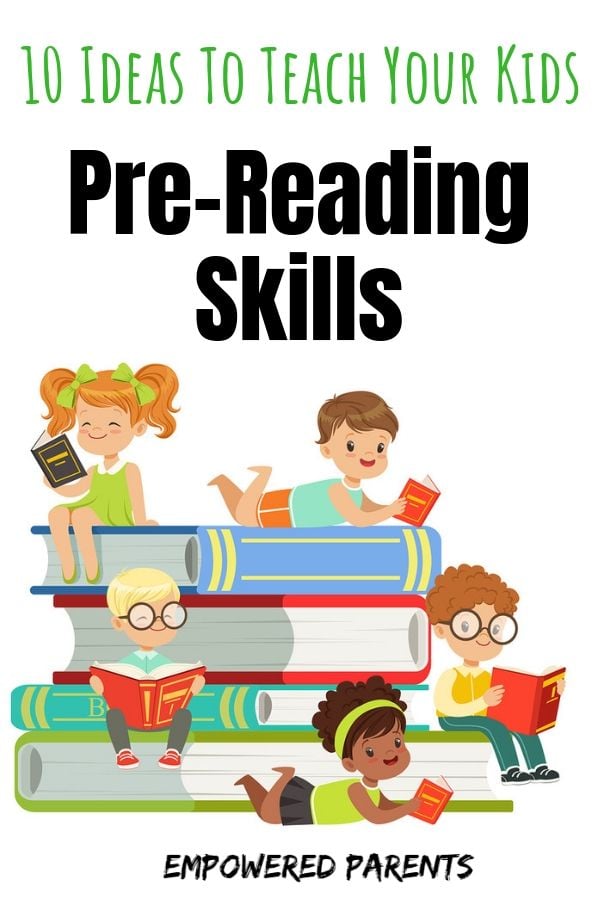
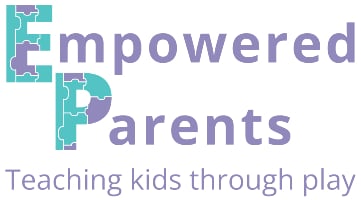
Lydia
Tuesday 18th of June 2024
This is very helpful because my class presently they're having a pretty much difficult time getting to know letters and numbers and being able to read.
I'd like some tips on how to teach preschoolers time And also some activities with it
Tanja McIlroy
Friday 21st of June 2024
Thanks, Lydia! Here is a resource for teaching time: https://empoweredparents.co/teaching-concept-of-time-to-preschoolers/
Ferleen Young
Tuesday 18th of June 2024
I am bless by these constructive information. GOD bless you and all the help you get to put these impactful skills together for betterment of myself to explainable terms for my 2 1/2 yr old daughter.😇
Tanja McIlroy
Friday 21st of June 2024
Thank you for your kind words!
Minga Biswek
Wednesday 31st of January 2024
This is great! I'll adapt this for my child. Thanks much.
Sherry
Thursday 4th of January 2024
This is very good activites. We currently do these in our morning meeting when w do a program called Heggerty. I can't believe how fast our kids have caught on. They really seem to like it.
Tanja McIlroy
Friday 5th of January 2024
That's wonderful!
Faith
Friday 2nd of December 2022
Thank you so much for sharing these excellent ideas. I will surely use what I have learned from reading this. I really find useful and informative.
Tanja Mcilroy
Monday 5th of December 2022
Thanks for reading, Faith!